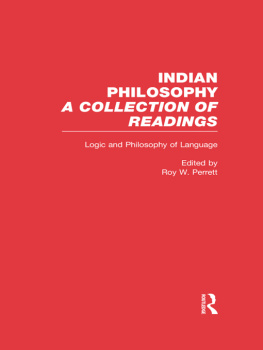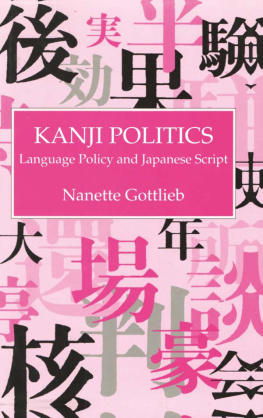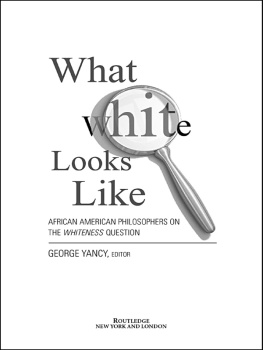SIERRA LEONE LANGUAGE REVIEW
THE AFRICAN LANGUAGE JOURNAL OF FOURAH BAY COLLEGE
Editor: DAVID DALBY
PUBLISHED BY
First published 1965 by Routledge
Published 2014 by Routledge
2 Park Square, Milton Park, Abingdon, Oxon OX14 4RN
711 Third Avenue, New York, NY 10017, USA
Transferred to Digital Printing 2006
Routledge is an imprint of the Taylor & Francis Group, an informa business
Routledge
All rights reserved. No part of this book may be reprinted or reproduced or utilised in any form or by any electronic, mechanical, or other means, now known or hereafter invented, including photocopying and recording, or in any information storage or retrieval system, without permission in writing from the publishers.
British Library Cataloguing in Publication Data
A catalogue record for this book is available from the British Library.
Library of Congress Cataloging in Publication Data
A catalogue record for this book has been requested.
ISBN: 978-0-714-62332-0 (hbk)
Publishers Note
The publisher has gone to great lengths to ensure the quality of this reprint but points out that some imperfections in the original may be apparent
CONTENTS
: A. T. von S. Bradshaw
: P. E. H. Hair
: Gordon Innes
: Thomas Decker
: P. E. H. Hair
: P. M. Bendor-Samuel
: David W. Crabb
: B. W. Andrzejewski
Studies devoted to S. W. Koelles Polyglotta Africana
Yoruba Dialects in the Polyglotta Africana: E. C. Rowlands
Fula Dialects in the Polyglotta Africana: D. W. Arnott
Nigerian Gross River Languages in the Polyglotta Africana (Part II): F. D. D. Winston
Mel Languages in the Polyglotta Africana (Part I): David Dalby
EDITORIAL BOARD
DAVID DALBY (Editor)
M. JOLLIFFE ELDRED JONES
THE Sierra Leone Language Review is the African Language Journal of Fourah Bay College, the University College of Sierra Leone. The Journal is devoted to the detailed study of languages in Sierra Leone and neighbouring areas of West Africa, and also to the more general study and discussion of African languages and language-problems. Several papers in each number are at present being devoted to a discussion of S. W. Koelles Polyglotta Africana, compiled at Fourah Bay over a century ago and republished by the College in 1963, and it is intended that these papers should eventually be republished as a Symposium volume on the Polyglotta. The first papers in this series were published in last years number.
Support for the Sierra Leone Language Review has been encouraging, from both subscribers and contributors, and it has now become possible for us to increase the size of each annual number. At the same time, however, it has proved necessary to increase the subscription-rate of the Journal, since publication costs have of course risen with the increase in size. The first four annual numbers of the Journal have been financed entirely by Fourah Bay College.
A proportion of papers in each number of this Journal are contributed by past or present members of Fourah Bay College, but the Journal is open also to the work of contributors outside the College. Manuscripts submitted for publication should be sent by registered post to the Editor, c/o The Library, Fourah Bay College, Freetown.
Scholars wishing to contribute to the Polyglotta Symposium are requested to consult the Editors Note (p. 58) in Number 3 of the Sierra Leone Language Review.
A. T. VON S. BRADSHAW
INTEREST in the classification of the languages of Africa has tended to concentrate the attention of scholars on the fundamental vocabulary and grammar, which provide the evidence for deciding genetic relationships. The available descriptive material, however, increasing rapidly in volume and accuracy, also offers plenty of scope for the investigation of the historical and cultural traces embedded in language. We may quote the example of English used by Greenberg in his Studies in African Linguistic Classification and apply it differently:
Even in English where we are told that foreign vocabulary amounts to sixty to seventy per cent of the lexicon, non-Anglo-Saxon words have barely touched the fundamental vocabulary.
If the philologist is mainly concerned with the Anglo-Saxon words and grammatical systems, which enable him to demonstrate the Germanic origin and affinities of English, the historian using philological evidence can find in the large foreign vocabulary information no less valuable. Even in the complete absence of other historical records it would be possible, from a rigorous examination of the word-stock, not only to infer the fact of the Norman Conquest but also to assess in some measure the effect it had on English life. In most parts of Africa historical records comparable to those which we have of the Norman period are largely absent and the clues carried down from the past by language assume correspondingly greater importance.
Unfortunately, though the word-stock of a language may contain precious traces of the past, these will inevitably be found in a state of complete confusion. The collection will resemble one of those sad museums stuffed with a gallimaufry of objects assembled by old-fashioned archaeologists who kept no record of the provenance or circumstances of their finds. Without literary evidence or detailed descriptions relating to different periods it is an extremely difficult task to work out the stratigraphy of a mass of lexical material. But the effort is very well worth making and no doubt, as the materials increase, improved techniques will be developed to assist the study and analysis of them.
This paper reports a very modest venture in the process of sorting the vocabularies of some of the languages of Sierra Leone. The Portuguese contribution to these languages is admittedly minute but the attempt to filter it out seems justified by two special considerations: first is the fact that Portuguese has long been a dead language in the area of investigation and therefore the loan-words are genuine survivors, endenizened in the languages which have borrowed them; secondly, in this case at least we have a considerable amount of documentary evidence concerning the circumstances in which the borrowing took place.
The stupendous nautical achievements of the Portuguese have unduly overshadowed their important successes in establishing human contacts and developing trade. Wherever they sailed they endeavoured to discover not only the currents and winds of the ocean and the outline of the coast but also what manner of men inhabited the lands they visited, how they lived, what objects they had to offer for trade, and what they desired in return. There is much to be said for the view that regards a successful trade negotiation as a more progressive and genuinely human achievement than a victory in battle or an expansion of territory won by conquest; conquerors and destroyers the Portuguese did not aim to be in West Africa and in this they were superior to the Spaniards who ravaged the civilizations of Mexico and Peru and to the more bellicose among the settlers of North America. Butchery and pillage can be accomplished without recourse to speech but trade, unless it is on the level of silent barter, requires question and answer, discussion and argument.






